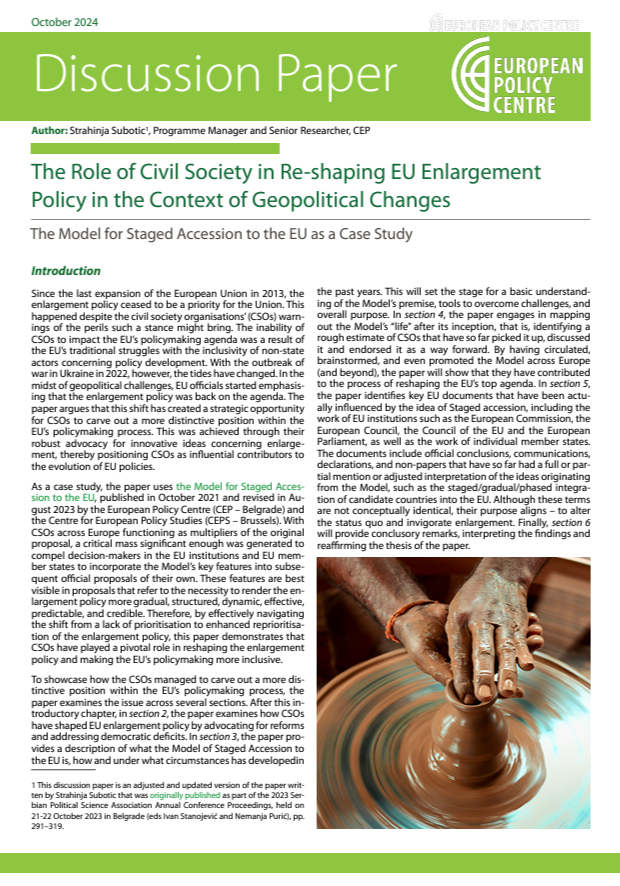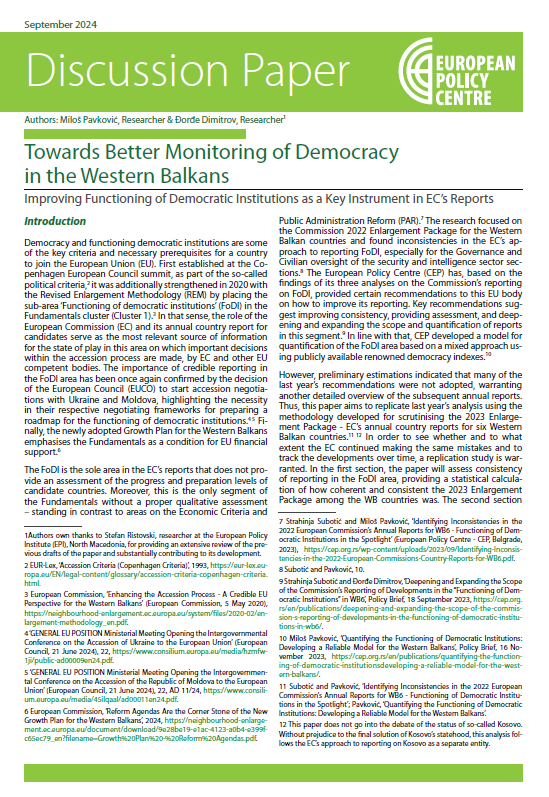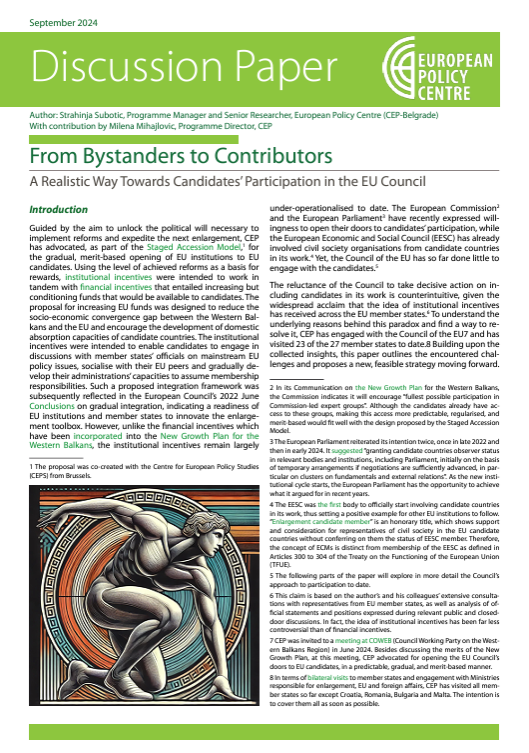Headquarters: Svetog Nauma 7, 11000
Office address: Đorđa Vajferta 13, 11000
Phone:: +381 11 4529 323
Although Montenegro has been considered a leader in European integration in comparison to other Western Balkans countries, it is the country that, after Turkey, has already achieved the record length of negotiation process for joining the European Union (EU). As of November 2022, it has been negotiating for as twice as long as the countries that joined the European Union last – Croatia, Bulgaria, and Romania. During more than 120 months of negotiations, Montenegro has managed to open all 33 chapters (the first being opened in 2012, and the last in 2020). It has temporarily closed only three chapters (the last being closed in 2017). After harmonizing the legal and strategic frameworks with the EU standards, Montenegro has been stagnating for years or making very limited progress, having failed to deliver concrete results and to implement the most complex reforms by applying EU standards on the ground, while the European Commission (EC) has been reiterating its concerns and recommendations year by year.
Apart from the challenges in relations with Serbia in the last few years, unlike its neighbors, Montenegro is not burdened by bilateral disputes with other countries, which puts it in a much better position. However, the key reforms are missing, especially in chapters 23 (Judiciary and Fundamental Rights) and 24 (Justice, Freedom, and Security), whose implementation is necessary in order to progress in the overall integration efforts. The key stumbling blocks are organised crime and corruption, together with the concerns over the non-functional judiciary and failure to reach political consensus on top judiciary appointments in the country, especially after the Constitutional Court had lost its quorum in mid-September 2022. Against this context, it became evident over the years that the EU does not have the ability to encourage or sanction the lack of reforms in the accession process, and that the negotiations need more “carrots and sticks”. In order to address this stagnation, it is necessary to overcome the existing binary model, according to which most of the EU integration benefits occur only after full membership, without sufficient incentives to reward reforms on the way or to sanction the lack of progress.
This document will analyse whether and in what way the Staged Accession model could be applied in Montenegro.
This paper is part of the National Issue Paper Series developed within the project “Support for further development of the model of the Western Balkans staged accession to the European Union“ implemented by the European Policy Centre (CEP – Belgrade) and the Centre for European Policy Studies (CEPS – Brussels). The Project is funded by the Open Society Foundations (OSF).
Author of this publication is Dragana Jaćimović, Researcher from Podgorica.


